Conference for Lebanon
Lebanon’s Path to Reform
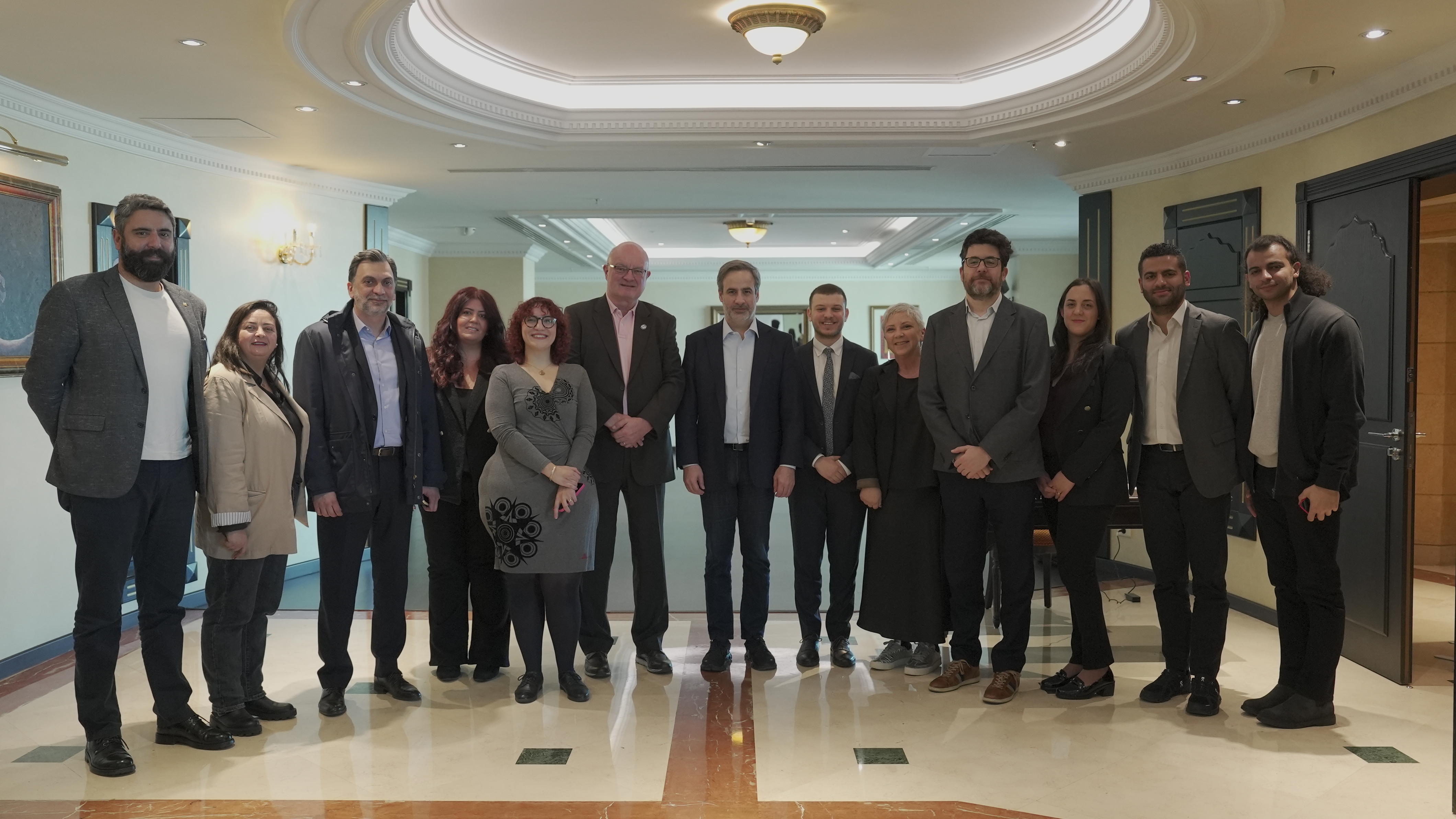
Strengthening partnerships and exchanging ideas at FNF Lebanon conference
© FNF Lebanon and SyriaOn February 4, 2025, political leaders, economic experts, and civil society representatives gathered at Habtoor City for the conference for Lebanon. The event, organized by FNF Lebanon and Syria, aimed to address the country's pressing governance, economic, and social challenges. Through a series of structured sessions, attendees explored a roadmap for reform and recovery, emphasizing the urgency of political accountability, economic revitalization, and social cohesion.
A Nation at a Crossroads
Lebanon stands at a critical crossroads, struggling with economic collapse, and an urgent need for systemic reform. The country faces deep financial turmoil, with currency devaluation, inflation, and failing public services severely affecting daily life. Institutional dysfunction and delays in governance reforms have further eroded public trust, while regional tensions add to the uncertainty. These challenges have left Lebanon in a prolonged state of crisis, demanding urgent and meaningful action.
Despite these hardships, opportunities for change remain. Civil society, youth movements, and reform-driven initiatives continue to push for transparency, accountability, and institutional reforms. Lebanon’s entrepreneurial spirit, a highly skilled diaspora, and potential international partnerships offer hope for economic recovery. While the road ahead is challenging, a collective effort from all sectors of society could pave the way for rebuilding institutions, revitalising the economy, and restoring democratic governance.
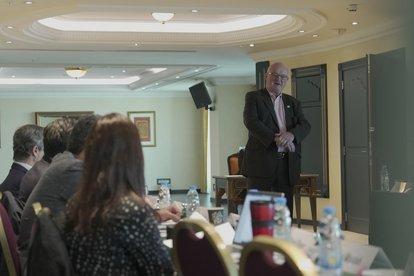
The Struggle for Governance and Decentralization
The day began with opening remarks from FNF MENA Regional Director, Mr. Jörg Dehnert, setting the stage for the first session on Governance and Institutional Resilience. Discussions highlighted the urgent need for judicial independence, transparency, and accountability in Lebanon’s political system. Experts stressed the importance of removing political interference from the judiciary and establishing independent oversight bodies to restore public trust. Political stagnation and constitutional manipulation remain significant barriers, making institutional reform a necessary first step.
Electoral reform was also a critical part of the discussion. The 2026 parliamentary elections could serve as a pivotal moment for change, particularly with expatriate voters influencing 128 parliamentary seats. Ensuring voter access—particularly in rural areas—was another major concern. The idea of mega-centers would facilitate voting for Lebanese citizens who face difficulties reaching polling stations. Without meaningful electoral reforms, progress in governance and decentralisation efforts will remain limited.
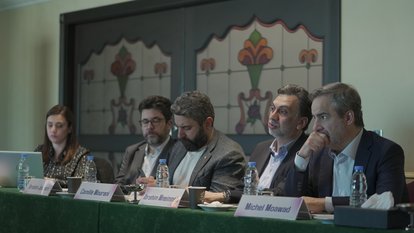
A Broken Economic System and the Need for Change
The second session, Economic Recovery and Development, delved into Lebanon’s financial crisis and the measures needed to stabilise the economy. Panellists examined currency devaluation, banking sector restructuring, and privatisation as potential solutions. While privatisation could generate much-needed revenue, concerns were raised about the risks of selling state assets without proper regulatory safeguards.
A key focus was on Lebanon's banking sector, which has faced a severe loss of confidence due to mismanagement, lack of transparency, and unofficial capital controls that have trapped depositors' funds. Restoring trust in financial institutions requires comprehensive banking sector reforms, including restructuring debt, strengthening regulatory frameworks, and ensuring greater oversight to prevent future crises.
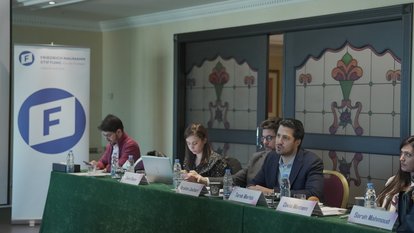
Additionally, discussions emphasised the importance of diversifying the economy and reducing dependency on remittances and traditional rentier-state economic models. Investment in productive sectors such as technology, renewable energy, agriculture, and industrial manufacturing could help create sustainable jobs and drive long-term growth.
Encouraging entrepreneurship and small and medium-sized enterprises (SMEs) was also highlighted as a crucial element for economic recovery. The government must implement policies that provide financial support, access to capital, and regulatory ease for startups and businesses to thrive. Incentivising innovation and creating an ecosystem that fosters business growth will be essential to reversing Lebanon’s economic decline.
The session also touched upon Lebanon’s energy crisis, with calls for investment in alternative energy sources, such as solar and wind, to reduce reliance on costly fuel imports. Improving energy efficiency and enhancing public infrastructure are vital steps toward economic sustainability.

Addressing youth unemployment and brain drain remains one of Lebanon’s biggest challenges. The conference underscored the urgent need to create opportunities for young professionals to remain in the country rather than seeking jobs abroad. Economic policies must prioritise job creation, vocational training, and better wages to retain Lebanon’s human capital.
Strengthening Social Cohesion for a Sustainable Future
In the final session, Social Cohesion and Sustainable Reform, speakers addressed the deep divisions within Lebanese society and the need for unity in the reform process. Sectarian divides, misinformation, and political polarisation have long hindered progress. The discussion focused on fostering national dialogue, leveraging digital platforms to combat disinformation, and empowering civil society organisations to bridge gaps between communities. Without social cohesion, political and economic reforms will struggle to take root.
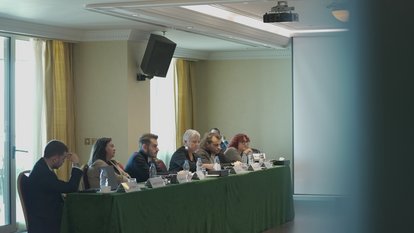
Moving Forward with a Clear Roadmap
As the conference ended, participants emphasised the need for immediate action. The attendees stressed on their calls for electoral reform, strengthening decentralisation, ensuring judicial independence, and restoring economic confidence. The discussions reaffirmed the urgency of reform but also highlighted that progress will require sustained efforts and political will.
Lebanon’s challenges are immense, but the conference underscored a growing momentum for change. Beyond the discussions, the country now faces the real test—translating these insights into action. The future of Lebanon relies on a collective commitment from political leaders, civil society, and citizens alike. Only through persistent effort and collaboration, can Lebanon build a more just, transparent, and resilient state.

